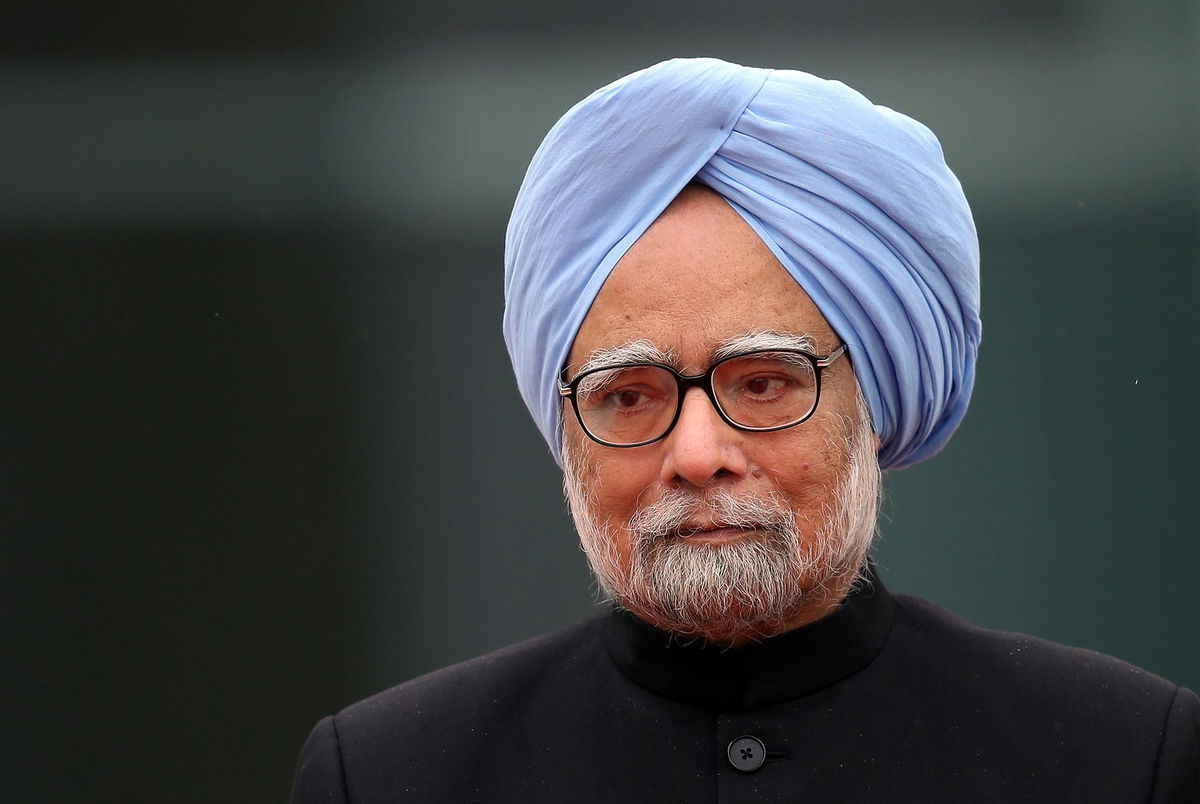Manmohan Singh, India’s former prime minister, dies aged 92

India's former Prime Minister Manmohan Singh arrives at the Chancellery on April 11
(CNN) — India’s former prime minister Manmohan Singh, who steered the country through sweeping reforms and paved the way for its emergence as a global economic powerhouse, has died. He was 92.
Singh was taken to the All India Institute of Medical Sciences in New Delhi for emergency treatment on Thursday after “sudden loss of consciousness at home,” the hospital said in a statement, adding that he had been undergoing care for age-related medical conditions.
Despite emergency efforts, he was declared dead on Thursday night, the hospital said.
Prime Minister Narendra Modi said India was mourning Singh’s passing, calling him one of the country’s “most distinguished leaders.”
“As our Prime Minister, he made extensive efforts to improve people’s lives,” Modi wrote on X on Thursday.
Known for wearing his trademark blue turban, Singh was India’s first prime minister from the Sikh minority. He led the country from 2004 to 2014, completing a rare two full terms in the world’s largest – and often tumultuous – democracy.
An Oxford-trained economist, he was widely credited as the architect of far-reaching reforms that opened up India’s economy, propelling years of unprecedented growth and lifting tens of millions of people out of poverty.
He also oversaw a new era of warming relations between India and the United States, marked by the signing of a historic nuclear-energy deal between the two countries in 2008.
Washington offered its condolences following Singh’s death. In a statement, Secretary of State Antony Blinken called Singh “one of the greatest champions of the US-India strategic partnership.”
“We mourn Dr. Singh’s passing and will always remember his dedication to bringing the United States and India closer together,” Blinken said.
Unexpected leader
Growing up poor, Singh was widely respected for his personal integrity and humility. However, a series of corruption scandals against his ministers in his second term had tarnished his image – though he was never accused of being corrupt himself.
The soft-spoken, mild-mannered technocrat didn’t set out to run for top office. Dubbed by some as a “reluctant king,” Singh was tapped to become prime minister by Congress Party leader Sonia Gandhi, who decided to turn down the role herself after leading her party to a shock election victory over the ruling Hindu nationalists in 2004.
Born in Italy, Gandhi faced opposition from Hindu nationalists to lead the country over her foreign roots. And so, she turned to Singh, who was then known for his role in unleashing a bold wave of economic reforms as finance minister in the early 1990s. Though some critics say Gandhi, widow of an assassinated prime minister, had been the real source of power behind the scenes.
Born in 1932 in a farming village without electricity in what was then British-ruled India and now part of Pakistan, Singh grew up in poverty with nine siblings. He studied hard and attended university in India, before heading to Britain to obtain a master’s degree from the University of Cambridge and a PhD in economics from Oxford.
After graduation, he returned to India to teach economics at his alma mater. He joined the commerce ministry as an economic adviser in 1971, starting a decades-long career in government.
Two decades later, Singh rose through the ranks to become the country’s finance minister when India was on the verge of economic collapse, with its foreign exchange reserves sufficient to cover only a few weeks of essential imports.
He moved swiftly to unleash a barrage of ambitious measures to transform India’s inward-looking economy, privatizing bloated state-run companies and courting foreign investment. The reforms jump-started India’s economic growth, propelling it to the world’s fifth largest economy of today.
Singh adopted a low profile after relinquishing the post of prime minister to his successor, Modi.
Months before his death, Singh said at a press conference that he did the best he could as prime minister.
“I honestly believe that history will be kinder to me than the contemporary media or, for that matter, the opposition parties in parliament,” he said, according to Reuters.
Singh is survived by his wife and three daughters.
The-CNN-Wire
™ & © 2024 Cable News Network, Inc., a Warner Bros. Discovery Company. All rights reserved.